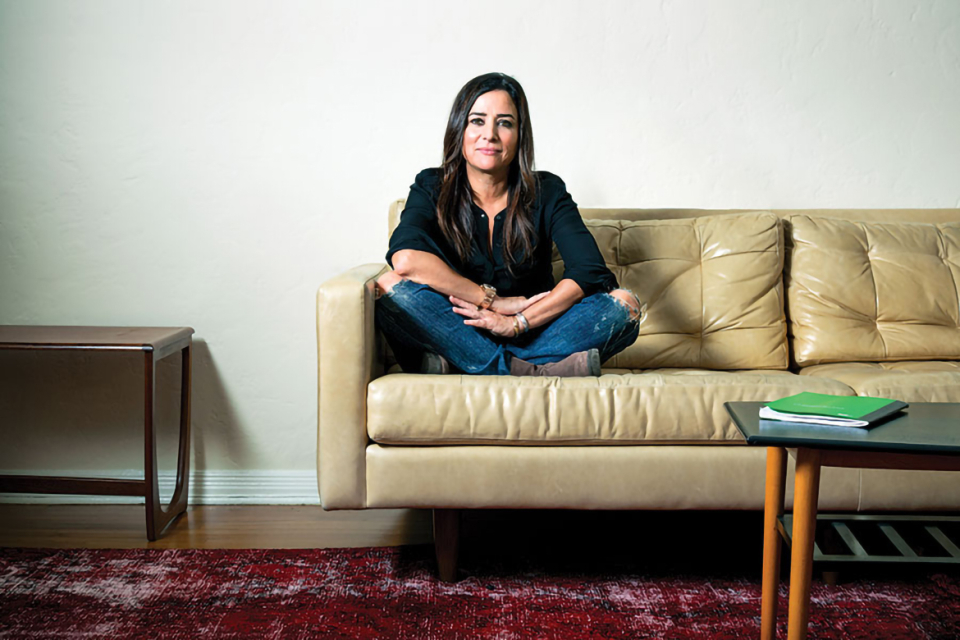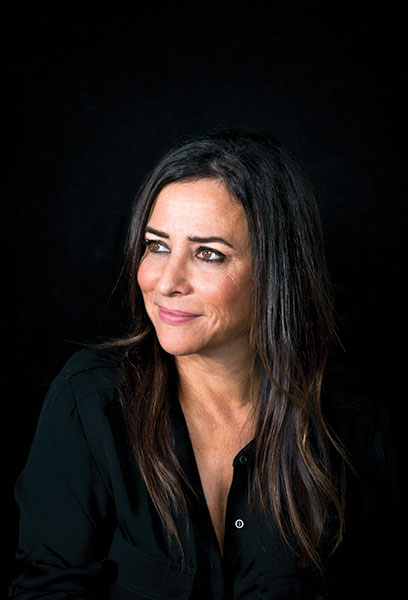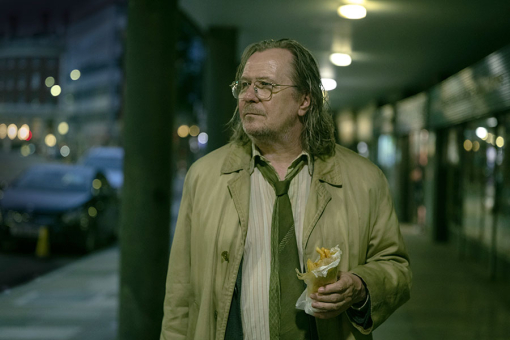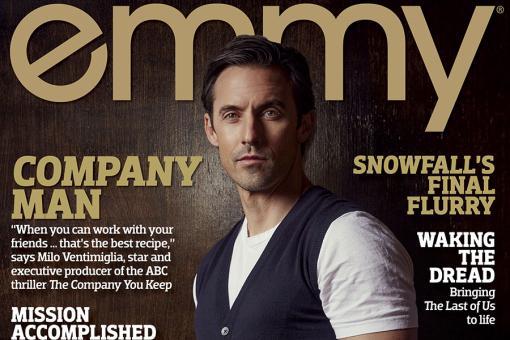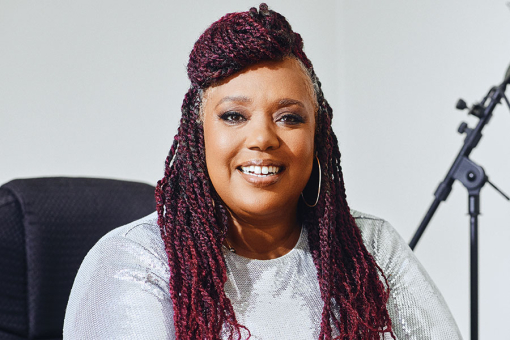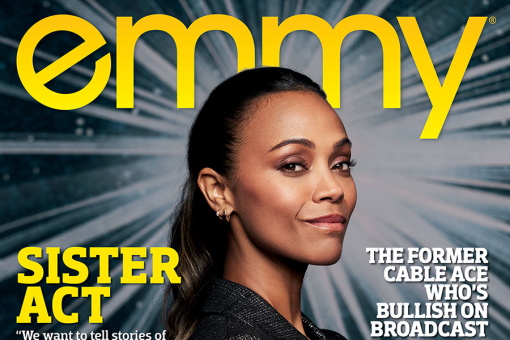Pamela Adlon is running through a list of achievements that, in her telling, sound like victories against the unspoken laws of Hollywood.
"The fact that I made my pilot and FX picked it up? Impossible," begins the co-creator, executive producer, showrunner, writer, director — and yes, star — of Better Things.
"The fact that I got picked up for season two and was able to [direct every episode]? Impossible. The fact that I shot an entire season, 10 episodes of television in 40 days — all on location, cross-boarded, two countries, two crews, two DPs, five Steadicam operators — and I went over 12 hours [on only] two or three days, and [I was] over $100,000 under budget? Impossible.
"And we had a great time? And I didn't have anxiety one day? And I knew exactly what I was doing? Impossible. It's impossible that I'm even here right now, that my life professionally exploded at 50."
Critic Ben Travers is one of many who appreciate Better Things, in particular, its distinctly different depiction of single parenting.
"Many chronicles of parental frustration focus on the mother as a martyr instead of a real human being with thoughts, desires and needs all her own," he wrote for IndieWire, "but Adlon finds a way to externally encapsulate so much of her inner monologue that we fully understand her motivations, start to finish."
It's a view that involves love and forgiveness commingled with lots of blunt talk, door-slamming and exasperatingly bad behavior. What struck FX CEO John Landgraf, however, was the show's unapologetically female perspective.
"What I like about Pamela's comedy is that I think it's quite universal but it doesn't get there through any form of accommodation," says Landgraf, who had vowed to bring more diverse voices to his network after a 2015 Variety report stated FX had the worst record for hiring women and people of color as directors. "There's no male point of view in [Better Things]. None at all. And that's what I love about it."
What's stunning about Adlon, Landgraf adds, is that, even with no background as a series creator or director, she arrived at Better Things as a fully formed filmmaker.
"Here's a woman in her 50s, who's been working in this business since she was a child, who had this in her and never had the opportunity to let it out. I ask myself the question, 'How many people in Hollywood, in the world, have whole worlds inside them of unspeakable beauty and profundity that will never see the light of day?'"
Still, when Adlon learned from writing partner Louis C.K. — they met on his 2006 half-hour HBO series, Lucky Louie — that he'd pitched her to Landgraf as a show creator, her first response was, "You're crazy. I can't do that."
It wasn't just that she was cowed by the huge undertaking. At the time, she was also in a recurring role as the foul- mouthed Marcy Runkle on Californication, writing and occasionally appearing on C.K.'s FX series, Louie, and being Mom.
Her mind-changing moment occurred during a guest arc on a broadcast-network series that was well-financed, disastrously organized and spinning out of control. "It was an abuse of people's time and money, and I looked around and thought, 'I can do this. I can run this shit. I'm not afraid anymore,'" Adlon says. Then she called C.K. "I'm ready," she told him.
According to Adlon, her spiel to Landgraf was about how middle-aged women like herself aren't accurately represented on television.
"I told him I wanted to elevate the mundane," she says. "I said, 'I don't relate to the women on Sex and the City. I want to see someone who looks like me and my friends; we don't dress up like pieces of candy. My friends and I could go rob a bank, and nobody would notice. We're invisible. There's this sell-by date that goes ding! and you just don't really exist anymore in that world.' That's what made him want to pick up the show."
Before Better Things, Adlon had never sat behind the camera. However, she had logged incalculable hours watching directors, both great and totally clueless, do their work. She's also the daughter of Don Segall, a producer and an episodic television writer (The Love Boat, Chico and the Man). "I grew up on soundstages," Adlon says. As her father shuttled the family from coast to coast chasing new gigs, she attended 13 schools.
Her first acting job, a voiceover for a Kool-Aid commercial, came at age 11. Listening to Adlon tell stories of the numerous jobs she booked after that is a dizzyingly jumbled pop-culture memory ride from the '80s to the present day.
"Garry Marshall came to visit the set at Paramount," she says of her role as a scrappy street kid in a doomed pilot version of the 1980 teen drama Little Darlings. Then she segued straight to Grease 2, in which she was cast at 14 as the pigtailed, back-talking Dolores Rebchuck.
However, she never got to finish that movie. As she was being driven from school to the set in Norwalk, California, the vehicle was involved in a head-on collision. "I broke my nose, my thumb, my knee, and I had a concussion," says Adlon, who went through the windshield.
Although she was "so bummed" she couldn't participate in the moment she had most eagerly anticipated — when the T-Birds and the Pink Ladies leap into the air simultaneously — she was in enough of the 1982 musical comedy to seal her reputation as a scene-stealer.
Along the way, she had a dispiriting experience with the drama department at Beverly Hills High School, where the teachers marginalized her because of her blossoming filmography. "I was persona non grata," she says. "They wouldn't even let me hammer a nail into a piece of scenery."
Instead, she picked up the tools of her trade on the job, by carefully scrutinizing her older, more experienced scene partners. "I was always kind of on the outskirts of everything, because I was a kid," she says. "And I learned the most from people who were inclusive and kind."
In hit shows like The Facts of Life, Night Court and Star Trek: The Next Generation, she learned to use her five-foot frame, determined stride, rasping voice and confrontational gaze to make her screen time count. It was six years, though, before she landed a recurring role as the very young wife of a coke-snorting record producer (Paul McCrane) on the ensemble crime series Wiseguy — and finally felt like part of a company of actors, of something bigger.
"It was a big turning point for me, acting-wise," Adlon says. She adds that an unexpected bonus was convincing McCrane, who played Montgomery in the 1980 film Fame, to serenade her with his insecure character's songs. "I was obsessed with him. I'd say, 'I want you to sing me "Dogs in the Yard" and "Is It Okay If I Call You Mine?"'"
More Adlon trivia: She was on The Redd Foxx Show and The Jeffersons, and popped up as part of a teen-girl Greek chorus in the film Say Anything. Those who know the 1996 romantic drama Bed of Roses might remember her as the bespectacled sidekick of an emotionally scarred investment banker, the bright comic relief in an otherwise drippy movie.
When on-camera parts abruptly stopped coming in her 20s, Adlon's voiceover career began. Her agent sent her a script for a 7-Eleven commercial. "I said, 'This is for a boy,' and he said, 'I know. Just trust me.'" The ad ran for years.
Realizing she'd found a new niche, Adlon barreled ahead, voicing wee lads on Rugrats, Dexter's Laboratory, The Oblongs, Time Squad and Teamo Supremo. She won an Emmy for her turn as drawling Bobby on the Fox animated comedy King of the Hill. That job lasted 13 seasons, enough time for her to absorb many lessons she would apply to Better Things.
"I learned a lot about writing and creating a mood and a feeling," she says. "There'd be air. Things could breathe. The writers were just brilliant on that show. It was massively important to me."
Her first brush with the blending of real life and make-believe was with Unscripted, a 2005 improvised series that ran for a single season on HBO. She played Pam, an outspoken single actress — although, at the time, she was actually married and raising young children.
"What a revelation," says Adlon, who still recalls the rush of shooting scenes on a digital camera that allowed for exhilaratingly long takes. Indeed, some of the funniest moments on Better Things involve extended shots: Adlon surveying the post-teen-party wreckage of her house or dragging an Igloo cooler seemingly forever across a soccer field. "I love my Steadicam operator, Luke [Rocheleau]," she says. "I love the theater of uninterrupted work."
When talking to members of the Better Things cast, it seems clear that part of what gives the series its glow of originality is the way Adlon is always creatively mining her years of experience. Take, for example, how Mikey Madison, who plays the eldest and perhaps brattiest daughter, Max, peels back the curtain on the magical last scene in the season-two finale.
"I had no idea," Madison says. She was given a different script than the other actors, then blindfolded and told that, when prompted, she should remove the covering from her eyes and just react.
That's when Adlon, Celia Imrie (who plays her mother, Phil), Hannah Alligood (middle daughter Frankie) and Olivia Edward (youngest daughter Duke), dressed in all black, recreated the starkly beautiful dance from the music video of "Tilted" by French synth-pop band Christine and the Queens.
"It's that kind of show," Madison says. "Everybody works so hard, but everything is very spontaneous." She is close friends with Adlon's three daughters and has slept over at their house. "I'm sure boundaries have been crossed," she admits about their unique showrunner/cast-member relationship. "But it's too late now."
The finale, titled "Graduation," aired on November 16. Seven days earlier, The New York Times had published a report about Louis C.K. and his sexual misconduct with women. FX swiftly canceled its overall deal with C.K. and stripped him of his executive producer title on Better Things and the other three shows he produced for the network. Adlon worried she would lose her series, but in the end she got to keep it.
For the past couple of hours, she's been 100 percent unbridled enthusiasm, given to loud proclamations and palm-slapping high-fives. However, when she speaks about C.K., her tone turns grim.
"The reality is that it's sad," she says. "At one point, it made me just want to stop. I want people to enjoy [Better Things] and not feel bad about what they're seeing because somebody's name is on the show. We had a creative collaboration for a decade. That's a huge loss for me. I sat shiva for weeks. Literally."
It was, of all things, her attendance at the 2018 Golden Globe Awards — she was nominated for best actress in a musical or comedy series — that helped Adlon regain her footing. "I get anxiety going to events, getting dressed up, things like that," she says. Nevertheless, she wriggled into a black sequined bustier and black skirt ("I dressed like a lady") and headed to the Beverly Hilton, not knowing what to expect.
"The amount of support and love that came my way for me and my show? I was, like, 'I'm going to cry.' Just gushing and gushing.
I was talking to Zoë Kravitz, and the producer of Stranger Things [Dan Cohen] grabs my arm and goes, 'My wife and I just binge-watched the first two seasons of your show. I love it so much.' That Sharon Stone knew the fuck who I was, let alone threw her support in my direction? I was blown away by the feeling of being included and feeling a part of it. It was an amazing gift."
Since childhood, Adlon has kept a journal, scribbling down musings and wry observations. Now, she funnels everything into Better Things. She keeps dozens of legal pads around, so they are always within grabbing distance, or taps notes into her phone.
"I write down things that my kids say, what my friends say. It's literally cheating when my mom walks into my house — I literally just go like this," she says, pretending to hold out her iPhone to record her mother's eccentric pronouncements. "I have a master list of what I call 'brain bits,' things that are great triggers for me."
After two seasons of writing Better Things scripts with Louis C.K., she has now assembled a writers' room — including two playwrights, Joe Hortua and Sarah Gubbins (I Love Dick).
The plate-spinning continues: in March, she appeared as a two-bit bookie's onetime high-school fling in All Square, which premiered at the SXSW Film Festival and won the Narrative Spotlight audience award. She's also in the Transformers spinoff Bumblebee, which will hit multiplexes this December.
Meanwhile, the brain bits keep flowing. "I'm just writing away," she says, waving a sheet of paper filled with dialogue. "I've had to come to terms with it. Now, I have a renewed vigor for making my show."
This article originally appeared in emmy magazine, issue No. 6, 2018

